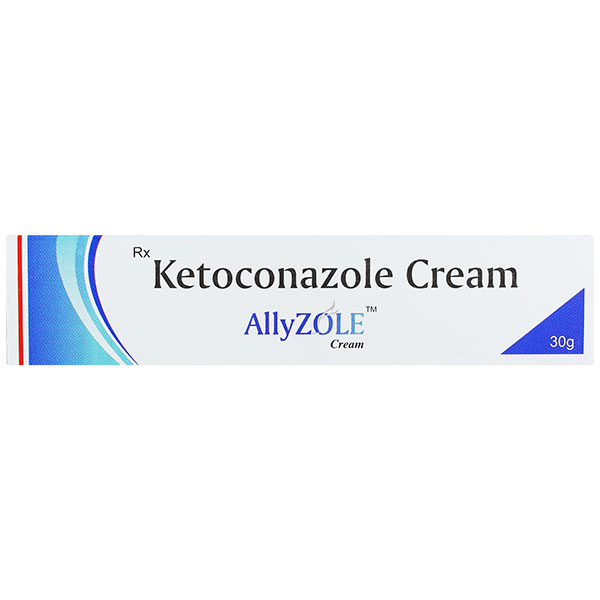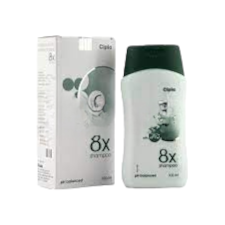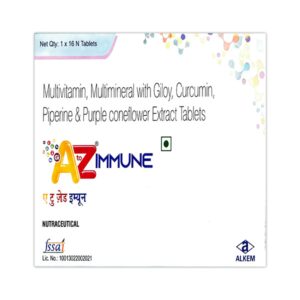Product Introduction:
Allyzole Cream is a topical medication that contains Ketoconazole as its active ingredient at a concentration of 2% w/w. It is used primarily for the treatment of fungal infections of the skin, including ringworm, athlete’s foot, jock itch, and certain types of yeast infections.
Allyzole Cream should be used in the dose and duration as prescribed by your doctor. This medicine should be used regularly to get the most benefit from it. Do not use more than you need – it will not clear your condition faster and may only increase the side effects. Skin infections will usually get better after 2 to 4 weeks. Do not use the cream for longer than your doctor has told you to and let him or her know if your condition does not improve after 2 to 4 weeks of treatment. You can help the cream work better by keeping the affected areas clean, making sure they are dry and washing your hands before and after treating the infection. If you have athlete’s foot, wash your socks or tights thoroughly and change your shoes daily if possible.
The most common side effects of using this cream include a burning sensation and irritation, dryness, peeling or blistering of the skin. Occasionally it can cause thinning of your hair. These are not usually serious, but you should call your doctor if you think you might have a severe allergic reaction. Signs of this include rash, swelling of the lips, throat or face, swallowing or breathing problems, feeling dizzy or faint and nausea. Get emergency help if this happens. Avoid direct contact of the cream or ointment with your eyes. In case of direct contact, wash your eyes with water and seek immediate medical attention.
it is not likely that other medicines you take by mouth or injection will affect the way this medicine works, but talk to your doctor before using it if you have recently used another cream that contains a steroid or had an allergic reaction to another antifungal medicine. This cream should only be used if it is clearly needed if you are pregnant or breastfeeding. Ask your doctor if it is safe.
Benefits:
- Antifungal Properties: Ketoconazole inhibits the growth of fungi by interfering with their cell membrane synthesis, effectively treating various fungal infections of the skin.
- Broad Spectrum: Allyzole Cream is effective against a wide range of fungi, making it suitable for treating different types of fungal infections.
- Topical Application: Being a topical cream, Allyzole offers direct application to the affected area, ensuring targeted treatment and symptom relief.
- Symptom Relief: It provides relief from itching, scaling, redness, and discomfort associated with fungal infections.
Side Effects:
Some potential side effects of Allyzole Cream may include:
- Skin irritation, redness, or burning sensation at the application site
- Dryness or peeling of the skin
- Allergic reactions such as rash, swelling, or itching (rare)
If any of these side effects persist or worsen, it is advisable to discontinue use and consult a healthcare professional.
Usage Guidelines:
- Clean and Dry Skin: Wash and thoroughly dry the affected area before applying Allyzole Cream.
- Apply Sparingly: Apply a thin layer of the cream to the affected skin and gently massage it in until absorbed.
- Frequency of Application: Follow the instructions provided by your healthcare provider or as directed on the product label. Typically, Allyzole Cream is applied once or twice daily, depending on the severity of the infection.
- Duration of Use: Use Allyzole Cream for the full course of treatment prescribed by your healthcare provider, even if symptoms improve. Discontinuing treatment prematurely may lead to a recurrence of the infection.
- Avoid Contact with Eyes and Mucous Membranes: Avoid getting the cream into your eyes, nose, mouth, or other mucous membranes. If accidental contact occurs, rinse thoroughly with water.
- Do Not Bandage: Do not cover the treated area with bandages or dressings unless instructed by a healthcare professional.
Drug Interactions:
Inform your healthcare provider about all prescription, over-the-counter, and herbal medications you are taking, especially:
- Other topical medications applied to the same area
- Antifungal medications taken orally or applied topically
- Corticosteroids used for skin conditions
These are not exhaustive lists, so it’s crucial to discuss potential drug interactions with your healthcare provider before using Allyzole Cream.
SAFETY ADVICE

Alcohol

Pregnancy

Breast feeding

Driving

Kidney

Liver
| Weight | 0.5 kg |
|---|---|
| Dimensions | 10 × 10 × 10 cm |




